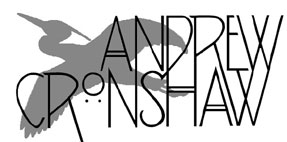
- Andrew Cronshaw website -
- Andrew Cronshaw MySpace -
- Cloud Valley Music website -
- Andrew Cronshaw website -
- Andrew Cronshaw MySpace -
- Back to Reviews Introduction page -
Written in fRoots issue 227, 2002
VARIOUS
Skaistakis Dziesmas
Upe UPE CD 021 (2001)
VARIOUS
Labritini, Ritina
Upe UPE CD 028 (2001)
VARIOUS
Alus Dziesmas
Upe UPE CD 026 (2001)
LAIKSNE
Kyukova Dzagyuze
Upe UPE CD 025 (2001)
VARIOUS
Music From Latvia
Cooking Vinyl International Music Series GUMBO CD022 (2001)
A clutch of recent new releases from Latvian label Upe’s Latvian Music
Collection, in its characteristic elegantly designed plastic-framed
cardboard packs.
As approaches to Latvian folk music emerge from
the ways of Sovietism, in effect a new folk scene is emerging. As part of that
process Ainars Mielavs’s label (which also issues Latvian music in other genres)
is continuing to release a stream of these CDs, pulling traditional songs out of
memories and written collections into new life. Before Upe began, there was
hardly any Latvian traditional music on CD, and none on a Latvian label. What
had appeared on vinyl or cassette before 1991’s independence bore the heavy
stamp of Soviet approval, and after it Latvian musicians struggled financially
to release anything at all.
While some in the series, such as Ugis Praulins’
1999 Paganu Gadagramatu or the works on the same label of the bands Ilgi
or Jauns Meness, expand on the material with developed arrangements or
atmospherics, all of the four here simply present the songs in uncomplicated
arrangements, with the main intention of getting people singing some of them
again in a natural way.
So on Skaistakas Dziesmas (“The most
beautiful songs”) we get a selection of songs from across the country, chosen by
Mielavs and Ilgi’s Ilga Reizniece, sung by a roster of male and female singers
and variously and lightly accompanied on instruments including kokles (the
Latvian version of the Baltic zither known in Finland as a kantele), guitar,
fiddle and bass.
Kyukova Dzagyuze (“Songs of the cuckoo”),
performed by the five-member female group Laiksne, concentrates on their
specialty, the body of songs from Latgale, Latvia’s easternmost province, in
which the cuckoo is used as a symbol of ill fortune, sorrow or transition. Again
simply sung, gently accompanied on plucked or strummed kokles, fiddle, quietly
plucked bass or, on the last track, what sounds like plastic whirly-bloogle
tubes.
Labritini, Ritina consists of children’s
songs, sung entirely by Ilga Reizniece’s nursery pupils at Jkrmala Alternative
School, accompanied in places by Reizniece on fiddle, kokles and whistle, Jauns
Meness guitarist (and recording engineer on all these albums) Gints Sola, and
occasional light percussion or keyboard. While clearly of use mainly to other
small children and their significant adults, it’s not the massed shout one might
dread; the children mostly sing one at a time, with considerable cuteness and
personality. Part of Reizniece’s booklet note is worth quoting: “As a folklore
teacher I have come to realise that you can’t really “teach” folklore. That’s
because a folk song is more a relationship than notes or words. Folklore has
never been a school subject; it’s the very life of our ancestors simply given a
foreign name”.
Alus Dziesmas means “Beer songs” and it’s
the only one of these that isn’t gentle; in fact it’s as brutally hearty and
rowdy and accordionish oompah as its name implies, with titles like I’m A
Hearty Drinker, Where Are You Beer, My Mate?, Here Comes The Beer
Can, and Listen Beer, Let Me In. But this music’s part of the
tradition too: “The modern revival of beer drinking and its reinforcement by
singing helps us to partly revitalise the habits of our ancestors - to
socialise, to feast, to drink beer without getting drunk, and to sing”. And
after what they’ve had to put up with Latvians deserve some noisy fun, and they
do make excellent beer.
It’s not easy for a person such as Mielavs to
release what he does and be economically viable; foreign interest and sales are
a great help, so it’s good to see Cooking Vinyl bringing out Music From
Latvia, a well-programmed and listenable compilation of tracks from these
albums and the rest of the Upe Latvian roots catalogue, including the more
world-crossover releases such as Paganu Gadagramatu, Ilgi’s Sow The
Wind, and the Latvian Bagpipes CD that has raised some interest
further west. It’s a shame, though, that the resources of a UK label haven’t
matched up to the inviting classiness of Upe’s design and packaging to make this
a CD that says “buy me - I look interesting and exotic”. All it has bestowed is
a standard jewel case and cheapo folded-over insert with no more information
than track title and source album.
© 2002 Andrew Cronshaw
You're welcome to quote from reviews on this site, but please credit the writer
and fRoots.
Links:
fRoots - The feature and
review-packed UK-based monthly world roots music magazine in which these reviews
were published, and by whose permission they're reproduced here.
It's not practical to give, and keep up to date,
current contact details and sales sources for all the artists and labels in
these reviews, but try Googling for them, and where possible buy direct from the
artists.
CDRoots.com in the USA, run by
Cliff Furnald, is a reliable and independent online retail source, with reviews,
of many of the CDs in these reviews; it's connected to his excellent online magazine
Rootsworld.com
For more reviews click on the regions below
NORDIC
BALTIC
IBERIA (& islands)
CENTRAL & EASTERN EUROPE, & CAUCASUS
OTHER EUROPEAN AMERICAS OTHER, AND WORLD IN GENERAL
- Back to Reviews Introduction page -